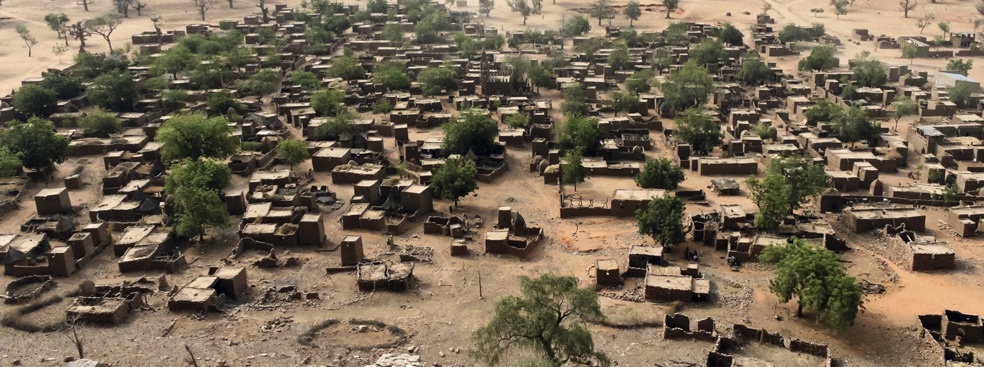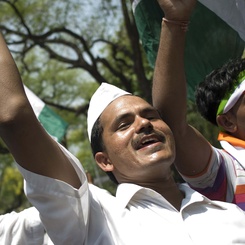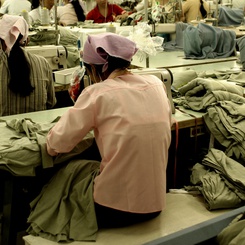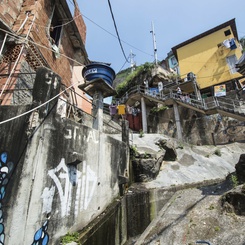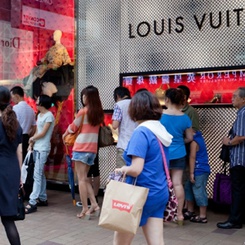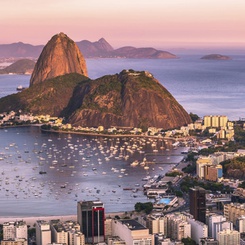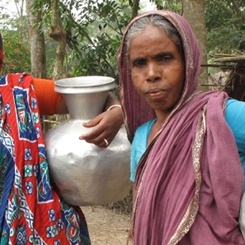With France planning to start withdrawing troops next month, some tough questions lie ahead for Mali and her African, European and international allies. France took the lead on the ground – hitting perhaps a post-colonial nerve for French and Africans alike. Now, who will take the lead in war’s aftermath, when keeping terrorist cells at bay may prove more difficult than the initial military intervention?
Beyond military hard-power, a long-term solution will require real societal and political development in the country. This is, of course, easier said than done.
According to Cristina Barrios, the war in Mali has brought new international attention to an old and long-deteriorating problem. If the public eye can stay focused on Mali, the chances for long term, collective solution are improved.
“The fragile situation in Mali is nothing new,” says Dr. Barrios. “For more than a decade there has been grave concern for the state’s political stability and its lack of development. When last year the country entered a real state of crisis with the ousting of President Amadou Toumani Toure, the lack of state control in some regions, and the advance of terrorist groups towards Bamako, French security forces felt there was a serious security risk, not only for Mali, but for the region as a whole. Indeed, we’re talking about the global problem of controlling trafficking in undeveloped regions – that is to say the illicit circulation not only of arms and drugs but also of human beings.”
France’s (perhaps surprising) unilateral move has thrust this problem into the spotlight. But now that the military intervention is coming to a close, will the situation in the Sahel once again begin to unravel? Beyond military support, will France, Europe and the international community provide the precision tools needed to foster development and promote long-term change?
The French and European role: Understanding the Malian Paradox
Under both Nicolas Sarkozy and François Hollande, France has declared a desire to distance itself from its colonial past, yet both have felt compelled to intervene on the African continent in situations of crisis. The clear difference between their two campaigns – Operation Licorne in Ivory Cost under Nicolas Sarkozy and Operation Serval in Mali under François Hollande – is popular, accepted legitimacy.
While it’s seen as unfortunate that a more local (Malian/African) or international (United Nation/European Union) solution could not be found, on a whole, French and local populations alike have applauded the arrival of French troops on Malian soil. Unlike Ivory Coast, France has few business interests in Mali, which has helped France underscore the humanitarian dimension this initiative. Furthermore, those aware of the deteriorating situation were happy that it was finally being dealt with.
“It is important however to never take something like this at face value. While French troops have been welcomed, the reality of war is very grim in poverty-stricken, abandoned areas,” explains Dr. Barrios. “And as far as French legitimacy is concerned, it’s important to remember that the current Malian government is the result of a coup d’état. Where is the honesty in deriving our legitimacy from a broken, un-democratic government?”
“So here is a paradox,” she adds. “While France was reluctant to intervene yet managed to justify its actions in the eyes of the international community, they have clearly seen the value added for this military intervention – it’s going to end the deadlock and France is the clear victor. We could even argue, if there are business interests at stake in Mali, that the French military machine could make a point for its strengthening, at a period of defence budgetary cuts.
The situation for the European Union is quite reversed. While some might see France as having taken the lead in Mali, it can also be argued that François Hollande used unilateral force. Europe, on the other hand, has always favored a comprehensive approach in its relations with Africa, keeping peace, development and democraticisation in mind.
“The European Union has already been actively supporting the growth perspective, launching governance projects and security support operations in Niger and West Africa in general. The paradox for Europe then is that, while they too have been active in Mali, the media has tended to say “Europe is not there. France is doing this alone because Europe was ineffective.”
“The thing is, soft power initiatives and development projects are not always terribly attention-getting in the public eye. Development is not an ‘event’ that you can report on as a finished product. To be fair, peace isn’t even necessarily an ‘event’ while war makes it to all front pages. And for Europe, this big picture of a long term development trend doesn’t materialize in a specific policy that can be showcased.”
The European approach could eventually help complement France’s military intervention, by adding to the short-term effectiveness of war the long-term effectiveness of development. The challenges are huge in this area as Mali continues to be one of the countries at the end of the human development index. However, with certain EU member states, France may have created resentment by acting unilaterally and showing off military might.
“Security is also a precondition for development – in that sense it’s good to have this kind of sequence where a military intervention leads into development plans. International cooperation will be the best way forward in Mali. When funds are needed, international meetings to raise them will be held in Brussels. However, some may feel that the EU is now forced to pay for the dishes that France went in and broke. It is fair that other countries may perceive this as a rushed operation they didn’t support. Now they are cold to cooperate, honestly arguing they do not fully understand, or are not fully convinced of what is going on. It’s a double edged sword.”
The Path Forward to Development
The development problems facing Mali are significant. If a legitimate government is to be elected, serious and fundamental changes need to happen first within the electoral system. The political class in Bamako also needs to shift their gaze outward from the capital. Right now, Bamako fails to uphold its authority in other parts of the country, which is really the root of the terrorist threat.
“We can ask what role France will now play. When there are no clear business interests for international powers, there is a tendency to leave political and societal problems on the African continent fester. Other conflicts in the Sahel have been left to rot for decades, and this could again become the situation for Mali after France withdraws troops.”
“To move forward, I think France should undertake a different strategy – they need to reverse the shaming of the European Union,” concludes Dr. Barrios. “The media has been a powerful tool in portraying French hard power as effective and European soft power as ineffective. This is untrue and dangerous, could potentially isolate France even further and ultimately backfire by pushing the EU out of Mali.”
